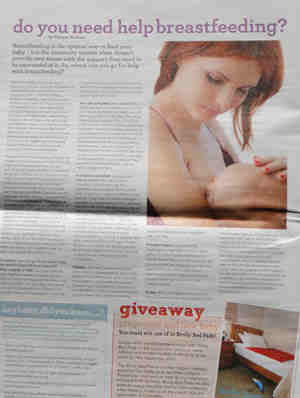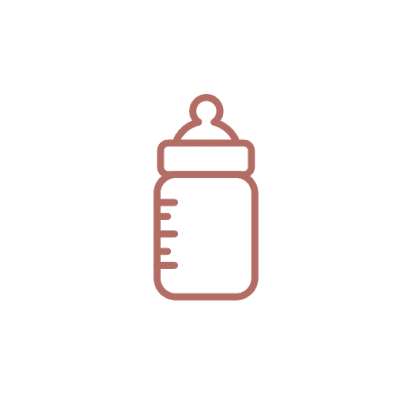Tots to Teens published an article by Breastmates in their August/September 2011 issue.

Here’s a copy of our article:
Do you need help breastfeeding?
By Frances McInnes
Breastfeeding is the optimal way to feed your baby – but the way our maternity system is set up often doesn’t provide new mums with the support they need to be successful at it. Where can you go for help with breastfeeding?
From the moment you find out you’re pregnant, messages about the importance of breastfeeding are everywhere you look – in pregnancy books, antenatal classes, parenting magazines, even posters on your midwife’s clinic walls. But many women don’t find breastfeeding to be as easy as the smiling photographs tell them it should be. New mums are usually released from hospital or the birthing centre before their milk has even come in, and discharged from their midwife’s care between four and six weeks post-birth. Yet research shows it can take around six weeks for breastfeeding to be successfully established, and ongoing support afterward is crucial to women choosing to continue breastfeeding. Where can you go if you need help, no matter how old your baby is?
Your midwife or LMC. Your lead maternity carer (LMC) or midwife is usually your first point of contact for breastfeeding advice and help, especially in the early days. Ask lots of questions to start, and if your midwife isn’t available, make a list of questions to ask later – or set up a special appointment solely to talk about breastfeeding and what to expect, and who your LMC recommends you ask for help if they’re not around.
Your GP or Plunket. Once you’ve been discharged from your midwife at around four to six weeks post-birth, your baby’s care will revert to your GP or to Plunket. Often at this time new mums feel at loose ends, as the focus shifts from both mother and baby to primarily your baby’s development. Make sure to bring up any questions or concerns you have about your body’s healing and breastfeeding to these caregivers. As it’s recommended you breastfeed your baby for at least a year, exclusively for the first six months, you need to have a trusted, knowledgeable, supportive healthcare provider to turn to as your baby grows and their breastfeeding need and habits change over time.
A lactation consultant. Hospitals and birthing centres often have lactation consultants on staff, although their availability can be an issue. Before giving birth, contact your hospital or birthing centre and ask if they have a lactation consultant available for new mothers and what her hours are. If you give birth on Sunday and the LC doesn’t come in until Thursday, you’ll miss out – so find out what support is available if the LC isn’t there. Lactation consultants sometimes hold classes at the hospital or birthing centre, so find out if you can attend these even if you’re not an admitted patient, or if the LC is available to new mums even after they’ve gone home. Private lactation consultants may also be available for a fee, but check with your own insurance company to see if they would cover a consultation.
Classes. Antenatal classes will discuss some aspects of breastfeeding, but it’s often following the birth that new mums have the most questions. Check with the hospital, Plunket, or your local parenting organisation such as Parents Centre to (www.parentscentre.org.nz) see if they offer breastfeeding classes or info sessions you can attend with your baby.
A support group. Local parenting organisations might also organise support groups for new mothers, which include “expert” talks and information as well as socialisation and in-person, mum-to-mum support. The La Leche League (www.lalecheleague.org.nz) holds breastfeeding-focused support groups in most New Zealand centres.
Online. When your baby is screaming and refusing to feed at 3am, where can you turn? Online support groups are a great option for mums who live rurally or who can’t quite make it out of the house (perhaps because they’re not permitted to drive following a C-section, or their baby is ill, or it’s just plain too hard to get organised for a trip somewhere in the car). The New Zealand website Breastmates (www.breastmates.co.nz) offers non-judgemental 24/7 support for mums with feeding issues, and boasts an active Facebook community (www.facebook.com/breastmates) of over 11,500 like-minded mums.








